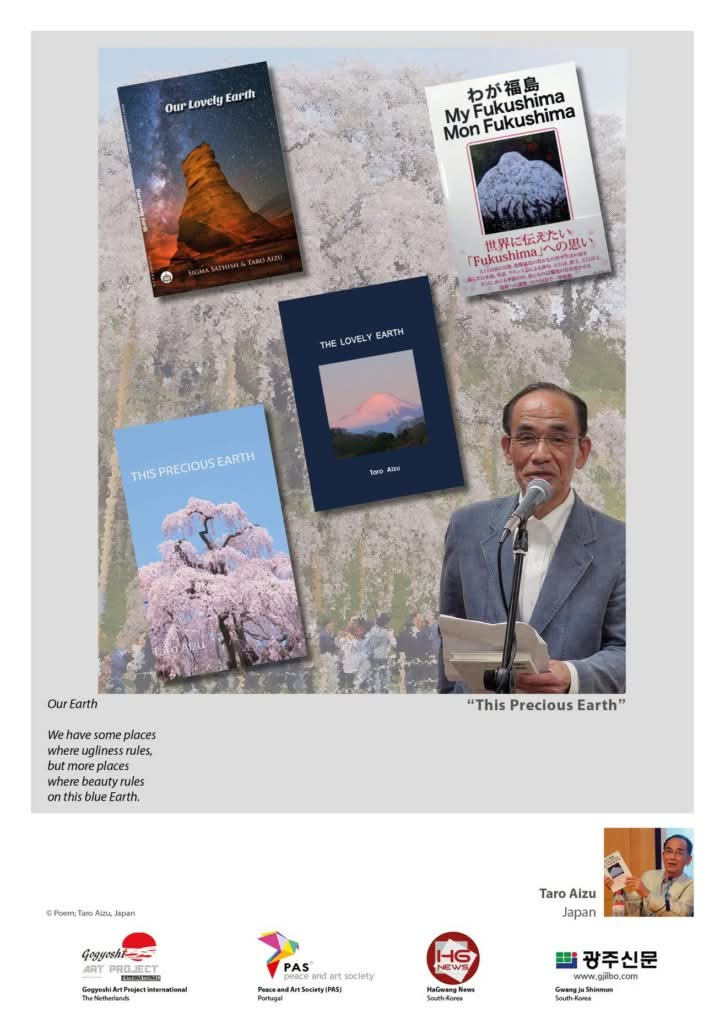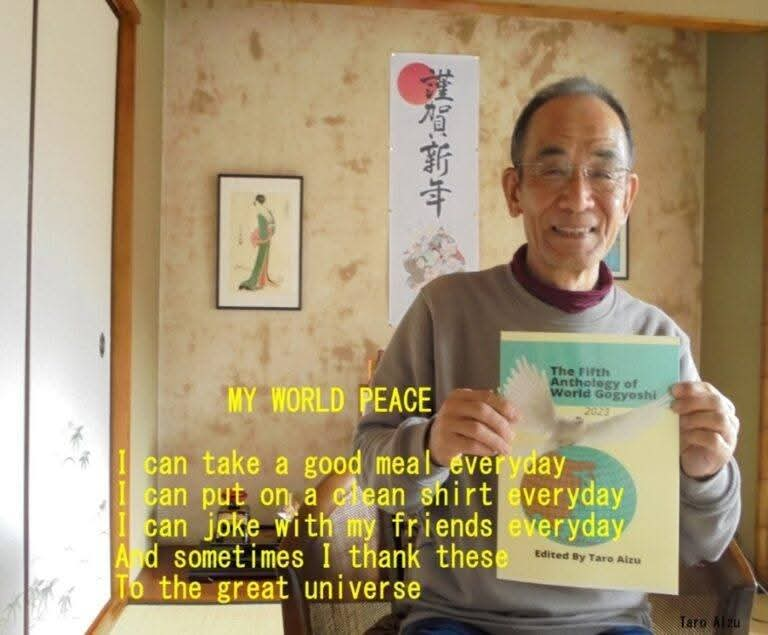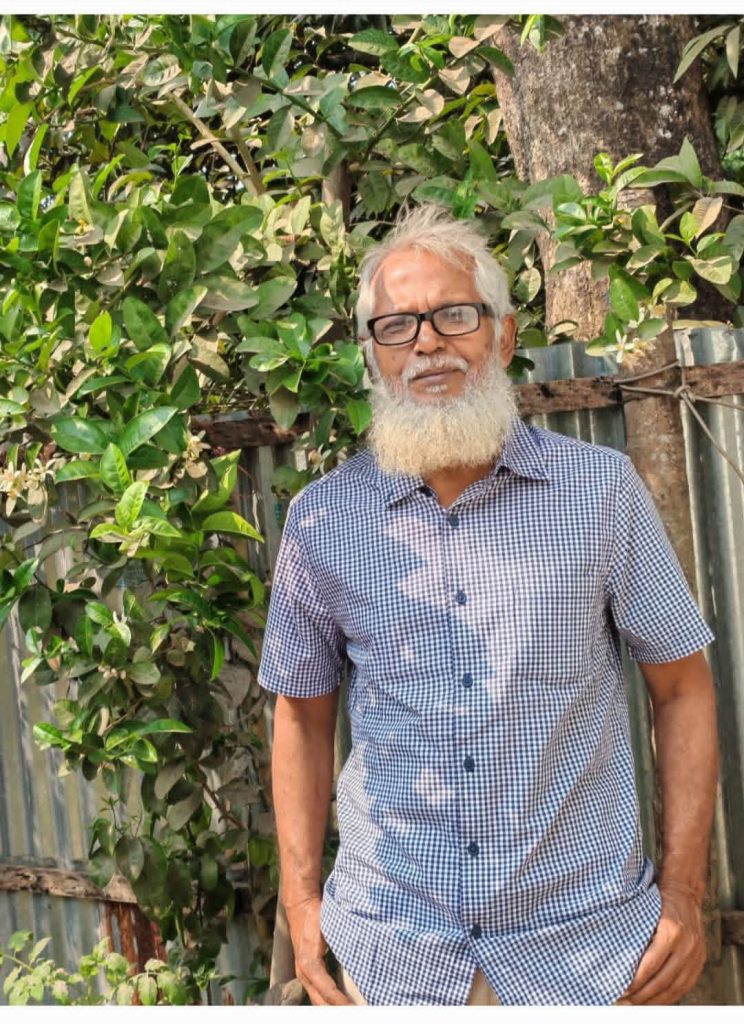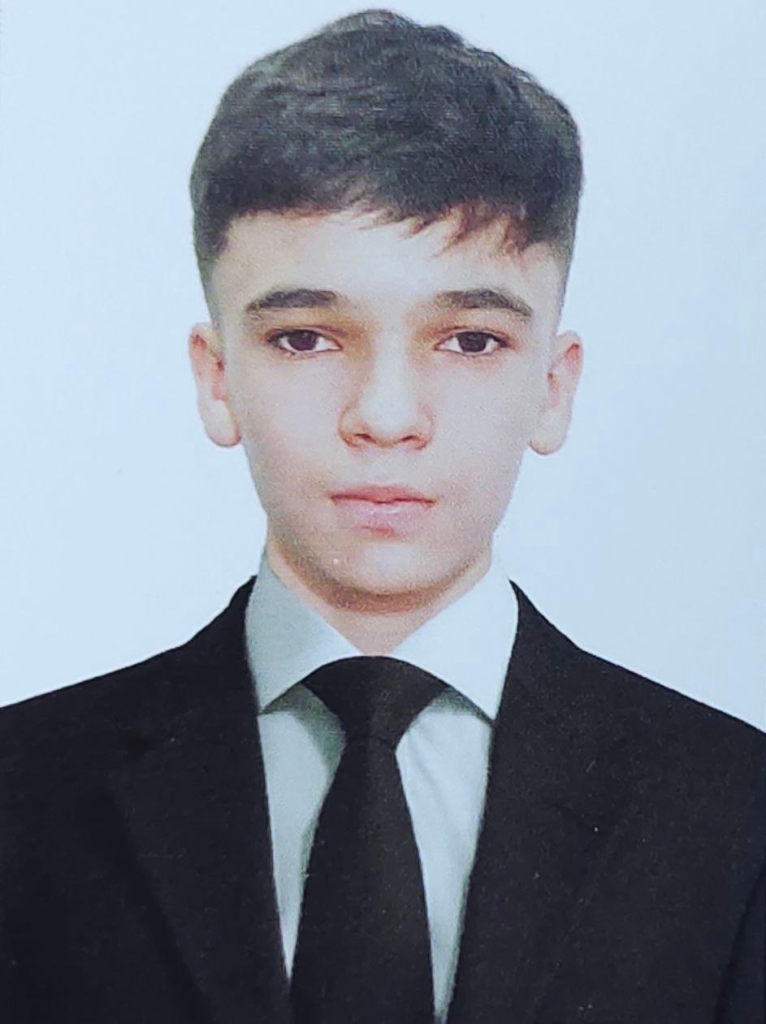Señor Despaïr
Against a Hopeless Time
- Señor Despaïr
Sand, evening.
The silence of the steps
by the breathing shore
after the thing I believed too late.
The steps slip in and out of hearing
like a memory I cannot reach, a word
at the back of my mind
that will not come as I stumble
through fog hiding the sea and my shame
in a grayness I almost touch,
toward pilings that loom like the back of a crowd
in a dark theater as they wait for it to begin,
a dance to dazzle them
in cruel wordless patterns bound to something almost
holy.
A shining crow—
rara avis indeed here where sea gulls rant,
smudges of whiteness, quivering sandpipers,
and alcatrazes like cracked schists—the crow
starts up, cawing and strident.
“Do you see the patterns of the raindrops in the sand?”
behind me
a courtly, old-world voice seems to say.
“They call it random out of their mathematical despair.”
The last word is spoken as if in Spanish: “des-pa-eer.”
I turn to see a small, older man, smiling, attired
impeccably,
bizarrely formal for beach wear—perhaps an hidalgo
from Oaxaca, or a patrón
from the cultured banlieus of Buenos Aires—
in an old-time white suit, elegant
bolo tie, his hair and mustache groomed and white as sea
foam.
I half-imagine he has materialized from the sea.
“But we do not need to listen to them too closely:
we cannot build a life on the psychosis of physics.
If you follow any chain of logic to its end,
you end in madness.”
I almost thought he said
next: “The night
will rage with the storm,
the rain cuts like ice through the air.
Come, huddle in my arms.”
But no.
He stood there politely and spoke on,
his English lightly accented with Spanish.
“Listen to the wind—el viento!”
He paused. “The next blow will flatten us, no doubt,
or if not, rip a hole in the sky
that will sink the world in the night like the sea.
It will be, as they say, very impressive!
“I cannot take much more of this, being
an old man, and yet I must,
foolish and weak as I am.
There is little tenderness because there is little
forgiveness.
I will pray to the night if I can find no other god.
But I can find no other god—eh, what of that?”
He looks toward the waves still visible in the dusk.
“ ‘Join us, join us!’ they call.
The darkness thickens around us, like a blanket.
I stare hypnotized like a snake at the old man.
He smiles more deeply, stares up at an invisible sky
then lowers his strange eyes back to me.
“One day I was invited to a party—
there was much food and drink y música,
and beautiful and clever and friendly young folk, and
dancing
all night, and romantic corners just made for kissing—
a wonderful party ‘where everyone is going,’ and I was
guaranteed to have the time of my life.
“But there was one condition, of course (have you ever
heard
of a wonderful offering without a condition?
After all, we live in a capitalist society!):
No one was allowed to leave the party alive.
“Everyone knew the condition? Of course we did;
we were not born, as you say so cleverly, yesterday!
It was even written in capital letters at the top, bottom, and
at elegantly spaced intervals across the invitation
we each received
in the postal mail two weeks ago.
“But each of us was convinced
we would survive:
We would sneak out just before dawn,
when the death squads were scheduled to descend
on the silent household
where the partiers were lying about, dead to the world or in restless dreams after the exhausting
night’s festivities,
and kill them all in their sleep.
“One or two are rumored to have escaped.
People constantly seek them:
they look into the face of everyone they meet,
hoping that maybe this one is a survivor.
I myself have been taken for such! I am certainly old
enough!
“May I ask you something?
Do you have a soul?
That thing that aches in the space you feel
somewhere behind your eyes
or hiding in the cavern of your chest;
that thrums with grief,
shakes with joy, makes you mad with love?
“You often wonder about that. I know this!
The scientists, those nihilistas,
are almost gleeful when they say they can’t find any
prueba científica for it, so, like ghosts, fairies, and God,
it must be dismissed with the condescending doubt
one gives idiotas, the uneducated,
and Republicans!
“The soul, they say,
is nothing but . . . is nothing but . . . is nothing,
nada, though you feel it is
todo—everything.
“It is not unlike this, which they say is the size
of the heart.”
He raises his fist and looks at it
almost with admiration.
“It can build a city, it can kill
a rattlesnake. It can shoot a president!
It may be nothing, but it is a nothing that can make
nothing
of everything. Remember that,
my physicist, biologist, economist, psychologist, psychiatrist, capitalist, Antichrist . . .
“Did I say that? I did not say that—erase it from your
mind.
It was not said, it was not heard or thought.
The truth will set you free
por nada. It opens the prison cell
to reveal la prisión infinita outside.”
The old man pauses and locks my eyes in his
in the darkness as it tightens softly around us.
“You think me un viejo loco,
scrambled with drugs and too much tequila—’crasy in the
head!’—
or just a crank outdated, useless. And you are right!
“It is better for you to think so, you who are young,
however old you feel: Compared to me,
you are a child, and deserve to keep your innocence
a little longer
en las cadenas del mundo y del tiempo—
in, what do you call?—the chains of time and the world,
as long, that is, as you are able to deny them
in the rage of your mind
and your strenuous will,
your pride and your fury
at the fate that world and time
are wreathing around your future,
the one you hope to defy
with a brilliant name across the air
that all may see, or none, that shouts out: estaba aquí—I
was here!
Once, once only, irremovable
in the sun’s cold memory, para siempre.
Even if no one ever sees it again: it was,
eternamente, like an absolute
matchstick—un hombre: un fósforo eterno!
“So what shall we call it, for we must have a name for it,
a word we can blame it on,
to give us the illusion of knowledge and power?
“‘El Reino des Perdidos’—‘The Kingdom of the Lost’—I
first liked, then found
trillado, trite;
then ‘Ink on Coal’ before I found that too banal;
‘Despair’ was at the head for a week;
and even better: ‘Désespoir’—
before my crítico interno returned
and tossed that definitively down the pissoir!
‘An Enemy of the People’—now that is an honest title!
But Ibsen used it,
and his fans can be unforgiving.
‘The Plot of the Homeless Sovereigns’ was a desperate
gesture only,
and ‘The Wilding Masters’ was an admission of defeat.
We eventually settled on something ancient yet unused,
direct, simple:
‘El viento y la noche’:
‘The Wind and the Night.’
“I remember how the sun rose then.
The throngs of clubbers staggered from a bar called
The End Up.
The heroes banked in a strange fire.
They bowed with a terribly earnest politeness.
It was damning: for only a murderous hatred
with a shot of blood and a pint of poison
to tickle the imagination could make a man glad.
Love be damned! It was hatred we wanted,
and the prospect of crushing an enemy.
Not the fact so much—the idea:
une jolie fantaisie, as the French say.
“The world is not content to destroy.
It must humiliate at the same stroke:
jeering, shame, and annihilation.
A goal worth pursuing, truly,
even if not realistic! Who knows,
next time we may get it right!
The Prince de ce monde will aid you if you are
patient and humble, and persevere: Perfect
destruction is as beautiful as perfect
creation—more rare and beautiful still!—
una perfección only those cast
into oblivion can ever know,
for only they are so far lost
there is no memory of them.
Like certain suicides:
a song, a drama, a dance,
in which realization, culmination, ruin
are one. Are one. Are one. Are one.
“Mi mundo era yo.
I was the world.
When I die, dies the universe—
the only universe I can know.
“I want to shout, ‘No! Never!’
but the futility of such words
suffocates them
even before they speak.”
The old man sighs, but seems
not to notice. Drunk on itself,
his voice patters on.
“But courage, my friend! Courage, defiance, and wit:
a taste for metaphoros and phrase-making:
much can be made from this garden for growing
unos universos eternos y infinitos—
universes eternal and infinite!—
out of the humus, compost heap, trash,
of the prima materia of this world;
swelling like lotus blossoms out of the waste
and perfuming the morning with a wilderness sweetness
none—no, none!—could have hoped for or dreamed of,
a delicacy exquisite,
a living line, a profile of ivory
cut from a cloud: the hand of an angel
baffled, as it turns in the air,
by the beauty floating on emptiness
like waterlilies on a cold pond.
“And who is there to consider all this,
delight in its million brief enchantments,
its undomesticated glories,
its conquests and gentleness,
its random ecstasy and splendor,
its snuggling, cozy and quite comical smiles,
its mystery without end—
who but us, my friend? And a few
torn-winged angels
we no longer believe in, and a passel of other gods.”
The sun had set. I could see no more than the old man’s
shadow
against the black wall of the sea, from which the voice
emerged in the wash of waves.
“Despising este espectáculo extraño—this freak show!—
into which we were born
is a sign of good taste.
“For only pity sees the mask
breaking behind the brazen face
where fear fights with pride, grief
with insolence, folly with suspicion
carved, half from wisdom,
half from a refusal to look at the face
de la realidad: the human
spirit, part demon, part angel, part monkey—
a pretentious ape that invented God
and hell.
“But—you are right”—though I had said nothing.
“Even more foolish is bitterness,
though it cleanses the soul to let it out,
like a scrubbing with a little black soap and brimstone.
It feels nice to rant, half mad,
to say unjust and terrible things
to an innocent and long-suffering listener.
Like yourself, young señor! To hell (not
to use stronger language,
but I have some respect for your sensibilities,
which may not yet have been corrupted
by the fashion in profanity that is now all the rage,
young señor!) to hell with this, to hell with that,
to hell with it all!
“Wherever one looks, there is no matter,
and mind disappeared long ago
from every metaphysician’s backpack. No mind, no
matter,
just waves of energy crossing uncertain voids,
not even nothing underneath:
the only thing we know is words
that cannot even say it!
We must be careful,
my friend: only the select have ever heard me this far
(they usually run away!), either they are willing to be
corrupted
or they have an espíritus fuertes as antidote
for this poison before it kills their . . . souls. The rest
yawned off in droves: we have the fragrance to ourselves,
the sweet briny aroma
of truth.
(Sí sí! Esa palabra sucia! That dirty word!
Go, vete, foul escéptico académico!
Back, back! Where is my stake
to thrust through your black heart at dawn!
Where is my cross! The terrible count
must be destroyed so we may live in hope
of peace, if not happiness:
Truth is dead! Long live Truth!
For what are you,
my friend? A prince in exile, a monarch
on a burning throne.
Sí, mi amigo! I draw your face in ink on coal
against ashes and night.
“Do not be bitter (so I speak to myself); by all means, do
not be bitter;
you are not alone, cramped in your little cell
of body, time, brain—though one feels
lonely enough in the mob
of billions on this earth.
“They watch the same moon shrink and grow,
scrounge the sun’s seeds from the brittle earth
and stare, like you, at the blackness behind the stars—
that strangely comforting darkness.
“Unlock the gate a little late you closed
behind your heart after, like a horse, it fled!”
I raise my hands to my face in the darkness.
Somewhere someone is praying.
But only silence crosses my lips.
“Oh, mi niño . . . ,” the voice whispers.
“The heart’s fear masks its love.
Its hatred masks its munificence.”
Or do I only imagine it? “There is nothing to dispute,
no cause for quarrel—unless of course
your quarrel is with God! ‘He’s too big
for that,’ someone once said—and,
si, he had a point. And I rejoined:
Even a mouse in a corner fights
the cat!
“So what if he’s bigger than you? That means
you need to be more cunning than God—
like the one who reigns in the regions below!
Anyway, what could be simpler?
He need but give a clear and simple
reason for the world he has made,
and for putting us in the middle of it!
“Above all else:
We see through you! Do not think
you can hide behind the atheists. What a brilliant
ploy you thought that was! You do not exist!
Poof! You are now off the hook, and the nihilists
can go wreck the world between their bombs and bottom
lines.
“The devil’s cleverest trick was convincing us he was a
fable,
and now you’re trying it out on your own! Nice try,
o Señor!
You must have more on your conscience than I thought!”
The pause is washed with a blur of surf,
dimly white, like the old man’s moon-lit shadow.
“Humanity is a fiasco. Let us face it frankly.
Man is a bizarre accident (alas, woman also,
siento tener que decir—er, sorry to have to say!)—
and probably is alone in the cosmic chaos:
It’s just us and God! Two points of mind
and perverse will, one mortal, one inmortal—
talk about having nothing in common but thin skins
and a bad temper! Fourteen billion
years of grandstanding between them! What a farce!
Clowns performing for an audience of clowns!
“Am I being cruel? Have you gazed with unjaundiced eye
at your neighbors? At yourself? You are not the exception.
What goes on inside your head, en su corazón?
Dime, what do you see there? No, don’t tell me.
I have had enough despaïr for one evening.”
A gull, pulled from the passing wind, screams
through the night. It’s so dark, I cannot
see my hand in front of my face—
that is a true phrase.
“The truth,
which you believe does not exist, like God and the devil,
is testing his arrows at the edge of the universe,
that beige and brain-shaped cloud, before he notches
his bow. It will take less time than forever
to reach us, entangled as we are, like a ball
of yarn at the end of a kitten’s hijinks.
The claw is no less merciless for the sweetness
of the eyes of its owner. The world is lovely,
dark and deep. She is innocent and beautiful and ruthless.
Dime una mentira para que pueda volver
a dormir. Tell me a lie so I can sleep again.
Too many truths have burnt a hole in my brain!
I hear the silence of the arrow—el silencio de la flecha—
as it flies toward me . . .”
_____
Christopher Bernard’s most recent collection of poems is titled The Beauty of Matter, “A Pagan’s Verses for a Mystic Idler.” Señor Despaïr will be available in book form from Real Magazine Productions, a publisher based in India, later this year.







